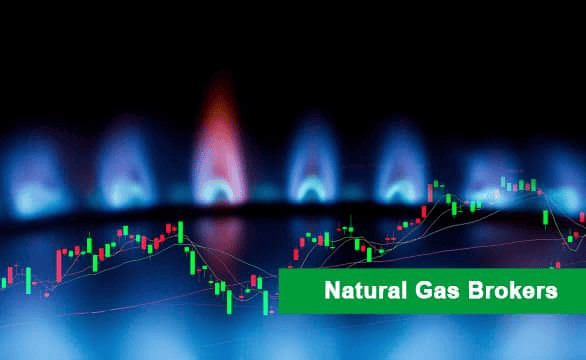
In recent years, the natural gas brokerage industry has witnessed significant advancements in technology. These emerging technologies are transforming how brokers conduct business, optimize transactions, and manage risks in a rapidly changing energy market. As technology continues to evolve, brokers must adapt to new tools and strategies to stay competitive. This article explores the key emerging technologies that are shaping the future of natural gas brokerage and how they are improving efficiency, accuracy, and profitability in the sector.
Blockchain Technology
Blockchain technology is revolutionizing the natural gas brokerage industry by offering a transparent and secure way to track transactions. In natural gas trading, trust and transparency are critical, as large sums of money and valuable resources are exchanged. Blockchain provides a decentralized ledger that records every transaction in real-time, ensuring data integrity and preventing fraud.
Internet Of Things (Iot) And Smart Sensors
The Internet of Things (IoT) is another emerging technology with a profound impact on natural gas brokerage. IoT devices and smart sensors can collect real-time data on gas production, storage, and transportation. This data is critical for brokers, as it provides accurate information about supply levels, potential disruptions, and market demands.
Big Data Analytics
Big data analytics is transforming how gas brokerage process and analyze market data. The vast amount of data generated from various sources, such as market reports, weather forecasts, and geopolitical events, can be overwhelming for brokers. However, with the help of advanced analytics tools, brokers can sift through this data to identify patterns and trends.
Cloud Computing
Cloud computing has become an essential technology for natural gas brokerage firms, enabling them to store, manage, and process vast amounts of data remotely. Cloud platforms offer scalability, allowing brokers to access powerful computing resources without the need for expensive hardware and infrastructure. This flexibility allows brokerage firms to expand their operations and handle larger volumes of transactions.
Machine Learning
Machine learning, a subset of AI, is playing a vital role in natural gas brokerage by helping firms predict future trends based on historical data. Machine learning algorithms can analyze past transactions, market conditions, and customer behaviors to provide accurate forecasts. This predictive capability allows brokers to anticipate price fluctuations and prepare for market shifts more effectively.
With machine learning, brokers can also identify patterns in trading activities that may not be visible to the human eye. This leads to more precise risk assessments and the ability to capitalize on market opportunities before competitors. By continuously learning from new data, machine learning systems can refine their models over time, providing brokers with ever-improving predictions and decision-making tools.
Renewable Energy Integration
As the energy landscape shifts towards sustainability, the natural gas industry is increasingly interconnected with renewable energy sources such as solar, wind, and hydropower. Technologies that integrate natural gas brokerage with renewable energy markets are emerging, allowing brokers to navigate the transition to cleaner energy.
Renewable energy integration tools help brokers manage the complex relationships between natural gas and renewable energy, enabling them to hedge against price volatility in renewable markets. These technologies also support carbon trading and environmental compliance, ensuring that natural gas brokerage firms can meet regulatory requirements while promoting sustainability.
Digital Platforms And Trading Exchanges
Digital platforms and online trading exchanges have transformed the way natural gas is bought and sold. In the past, brokers relied on manual processes and personal relationships to conduct trades. Today, digital platforms provide brokers with direct access to global markets, allowing them to execute trades more quickly and efficiently.
These platforms offer real-time pricing, market data, and automated trading features, streamlining the entire brokerage process. Brokers can use digital platforms to connect with buyers and sellers worldwide, expanding their reach and increasing profitability. The transparency and efficiency of digital platforms reduce transaction costs and minimize the risk of errors in trading.
Advanced Risk Management Tools
Risk management is a critical aspect of natural gas brokerage, and emerging technologies are providing brokers with more sophisticated tools to mitigate risk. Advanced risk management software allows brokers to analyze potential risks, such as price fluctuations, supply chain disruptions, and regulatory changes, in real time.
By integrating risk management tools with AI and big data analytics, brokers can develop more comprehensive risk profiles and adjust their strategies accordingly. These tools help brokers minimize losses, optimize hedging strategies, and maintain a competitive edge in the volatile natural gas market. Effective risk management ensures that brokers can protect their investments and deliver better outcomes for their clients.
Mobile Applications
Mobile technology is another emerging trend in natural gas brokerage. Brokers can now access critical market information, monitor trades, and communicate with clients directly from their smartphones or tablets. Mobile apps provide flexibility and convenience, allowing brokers to stay connected to the market, even when they are on the move.
Conclusion
The natural gas brokerage industry is undergoing a technological transformation, driven by advancements in automation, AI, blockchain, IoT, and big data analytics. These emerging technologies are reshaping how brokers conduct business, improve decision-making, and manage risks in an increasingly complex market. By adopting these innovations, brokers can stay ahead of the competition, enhance operational efficiency, and provide better service to their clients.
FAQs
How Is Ai Impacting Natural Gas Brokerage?
AI is helping brokers automate tasks, analyze market data, and make more informed decisions. It improves efficiency and helps brokers respond faster to changes in the natural gas market.
What Is The Role Of Blockchain In Natural Gas Trading?
Blockchain provides a secure and transparent way to track natural gas transactions. It reduces the need for intermediaries, speeds up transactions, and ensures data integrity.
How Do Iot Devices Help In Natural Gas Brokerage?
IoT devices collect real-time data on gas production, storage, and transportation. This data helps brokers monitor supply levels and make better trading decisions based on accurate, up-to-date information.
Why Is Cloud Computing Important For Natural Gas Brokers?
Cloud computing allows brokers to store and process large amounts of data remotely, providing flexibility, scalability, and real-time access to market information, which helps in faster decision-making.
How Do Mobile Apps Benefit Natural Gas Brokers?
Mobile apps enable brokers to stay connected to the market and clients while on the move. They offer real-time notifications and access to trading platforms, ensuring brokers can react quickly to market changes.






